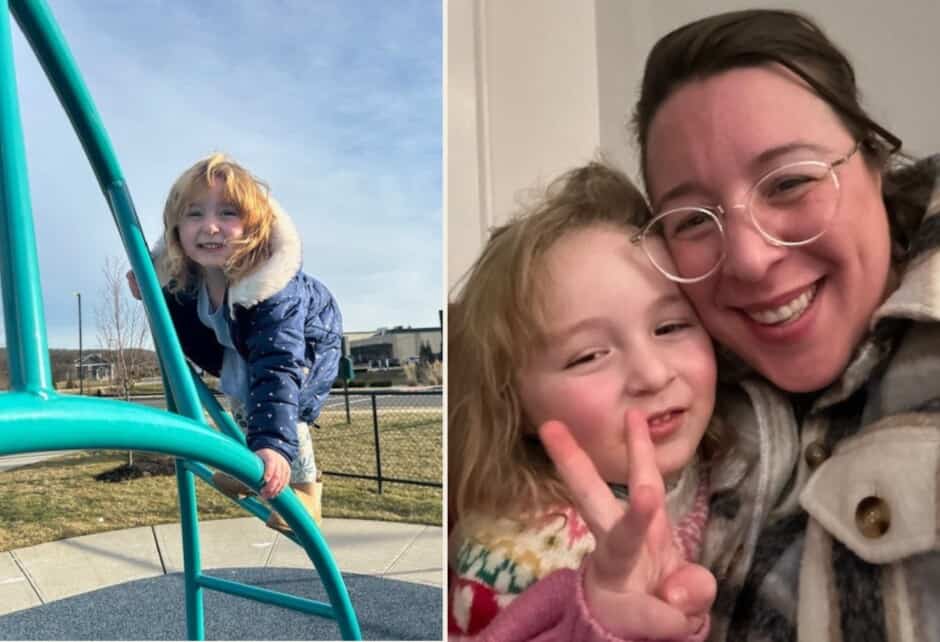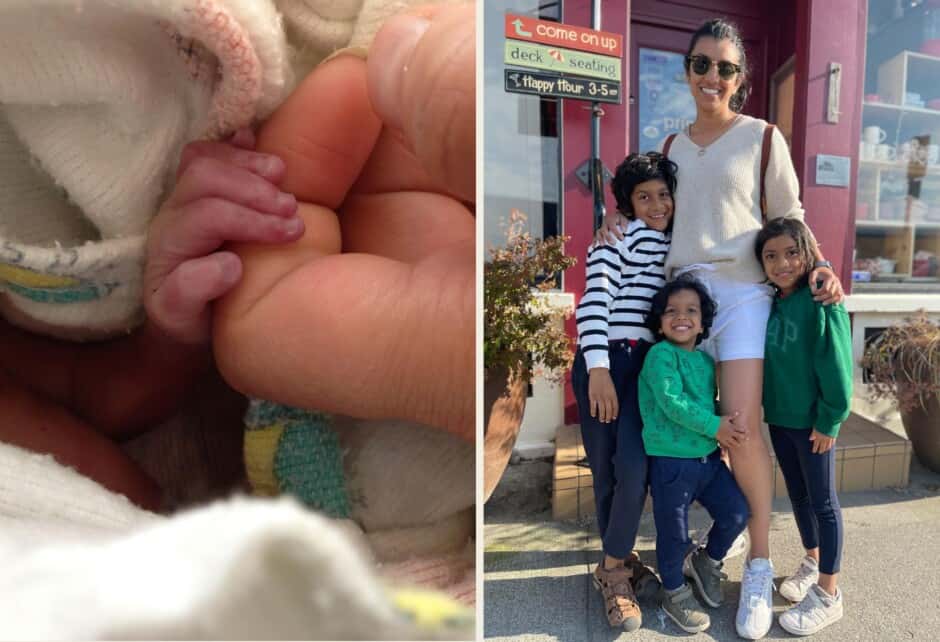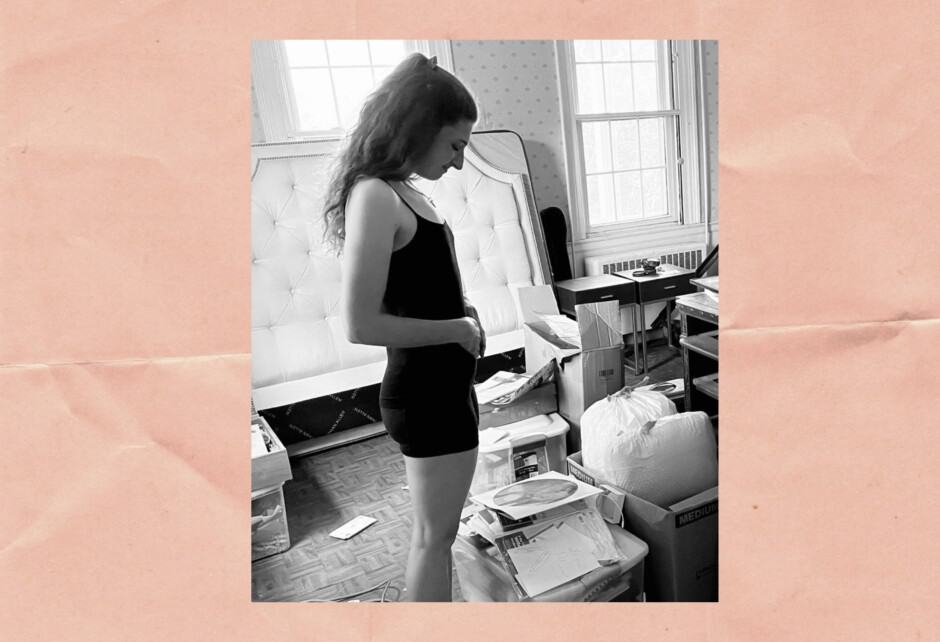
Mom Talk: Advocating For Myself & All Black Mothers
Written by Chasa Toliver-Léger
Photography by Chasa Toliver-Léger
Advocating for oneself and one’s health has proven to be vital—especially for Black women. In today’s Mom Talk essay, Chasa Toliver-Léger—an Oakland-based mother to 1-year-old Léo Jules and a PR Manager at the global design firm HKS—shares her experience of how being dismissed by ER doctors lit a fire in her to advocate not only for herself, but for all Black mothers.
Thanks to the family and friends who have preceded me in motherhood, when I think of Black motherhood, joy, resilience, and strength come to mind. Due to my own personal journey navigating infertility, pregnancy, and being a first-time mother, Black motherhood for me means advocacy and awareness. Advocating for myself and for other families that might not have anyone in their corner. Bringing awareness, to myself and others, of the issues and struggles we encounter. While having only been a mother for a year, my road to having a family started nearly two years before our son, Léo Jules, was born.
In 2018 I experienced an inexplicable fever and pelvic pain that had me in bed for a week. When I made an emergency visit to the doctor, my concerns were dismissed and I was told that my pain couldn’t be too bad because I didn’t demonstrate the “chandelier effect” (a legitimate medical reference for being in excruciating pain in which the patient reaches up to motion the grabbing of a hypothetical ceiling-mounted chandelier). Apparently being in so much pain that I vomited in front of her wasn’t compelling enough. My appointment ended without any resolutions and the advice I was given (“go home and eat some soup”) felt dismissive. Feeling frustrated but determined to get the answers I deserved, I immediately resolved to speak up for myself in order to get the help needed. In other words, on to the next! I immediately messaged my other physicians, both women of color, on the car ride home.
Unfortunately, what I experienced during my emergency visit to the doctor is not uncommon for Black women as we often experience implicit bias in the healthcare system that results in a diminished quality of care and less urgency around our pain. In speaking up for myself, we were taken on a journey of testing that led to a discovery: if my husband and I ever wanted to start a family, we couldn’t waste any time and would need medical assistance. Being in my early thirties, that was a complete shock but we were very grateful that I had listened to my body, didn’t accept the indifferent care I had previously received, and sought additional help.
While my journey to conceive via IVF wasn’t the easiest, it certainly wasn’t the most challenging and we feel lucky that things worked out fairly quickly without much disappointment. But still, the mental stress is taxing no matter what. Which is why I didn’t keep this challenge to myself and sought out a psychologist to learn about strategies I could use to cope. I also allowed my family, friends, and colleagues to follow along as I provided them with updates as I navigated the process. This provided me with an outlet for support and the ability to be transparent around issues that would likely impact my everyday life. I felt so fortunate to have supportive women in my life, especially colleagues, who never made me feel badly about taking time off for appointments or not feeling my best. Being transparent was also a way to help destigmatize infertility and bring awareness to it, especially for Black women. It’s easy to feel isolated when the face of infertility is very white. The more we speak and share our truth, the more we will be heard and seen.
During my fertility treatments and throughout my pregnancy, I was working on an architecture and design storytelling assignment for a project, a maternity ward in Uganda. This project, Kachumbala Maternity Unit, was created to improve maternal and infant health outcomes in an impoverished rural area of the country. While learning about the project and the solutions the design team provided, I also learned that access to midwives directly impacted positive outcomes for this community. During this time, we were hearing in the mainstream media that famous Black women, such as Beyoncé and Serena Williams, had experienced their own life threatening pregnancy complications. In sharing their stories, more awareness was created around the disparities among Black women and maternal health outcomes. This was the reason why I found it imperative to partner with a doula for my pregnancy, labor and delivery, and postpartum. The San Francisco community doula network SisterWeb provided me with a Black doula through their Kindred Birth Companions program and ensured that we had another advocate in the room with us during one of the most vulnerable events of our lives. The organization is doing great work for women of color, including Latinx and Pacific Islander families.
Now as a mother to a 1 year old, these experiences have inspired me to want to figure out a tactile and meaningful way I can help Black mothers in my own community. After really thinking about what I could offer, I looked back at the struggle I had the first two months of breastfeeding and the passion I developed for it. With lower rates of breast or chestfeeding among Black families—a deeply rooted issue due to historical factors, socioeconomics, and racial biases—I realized that this could be a way for me to offer assistance to a community that needs it the most. With that, I am currently taking classes a couple of nights a week to become a certified lactation educator in hopes of being able to volunteer wherever I’m needed.
I hope my experiences help to shine the light as to why awareness of and advocacy for Black mothers is essential. The health and wellbeing of our families is worthy of more urgency and attention. My ultimate goal is to lead by example for my son in helping to protect and respect Black women. I will have no greater joy in knowing later in life that he has grown up understanding and demonstrating that we can help end the medical disparities Black women experience through education, continued awareness, and by advocating for ourselves and our community.
For more information on supporting Black maternal health—from preconception to postpartum—check out our interview with Dr. Joy Cooper of Culture Care.
Are you a mother with something to say? Send us an email to be considered for our “Mom Talk” column.
Share this story



